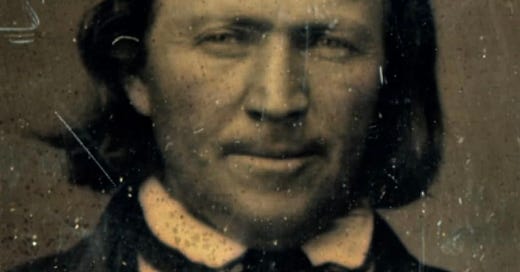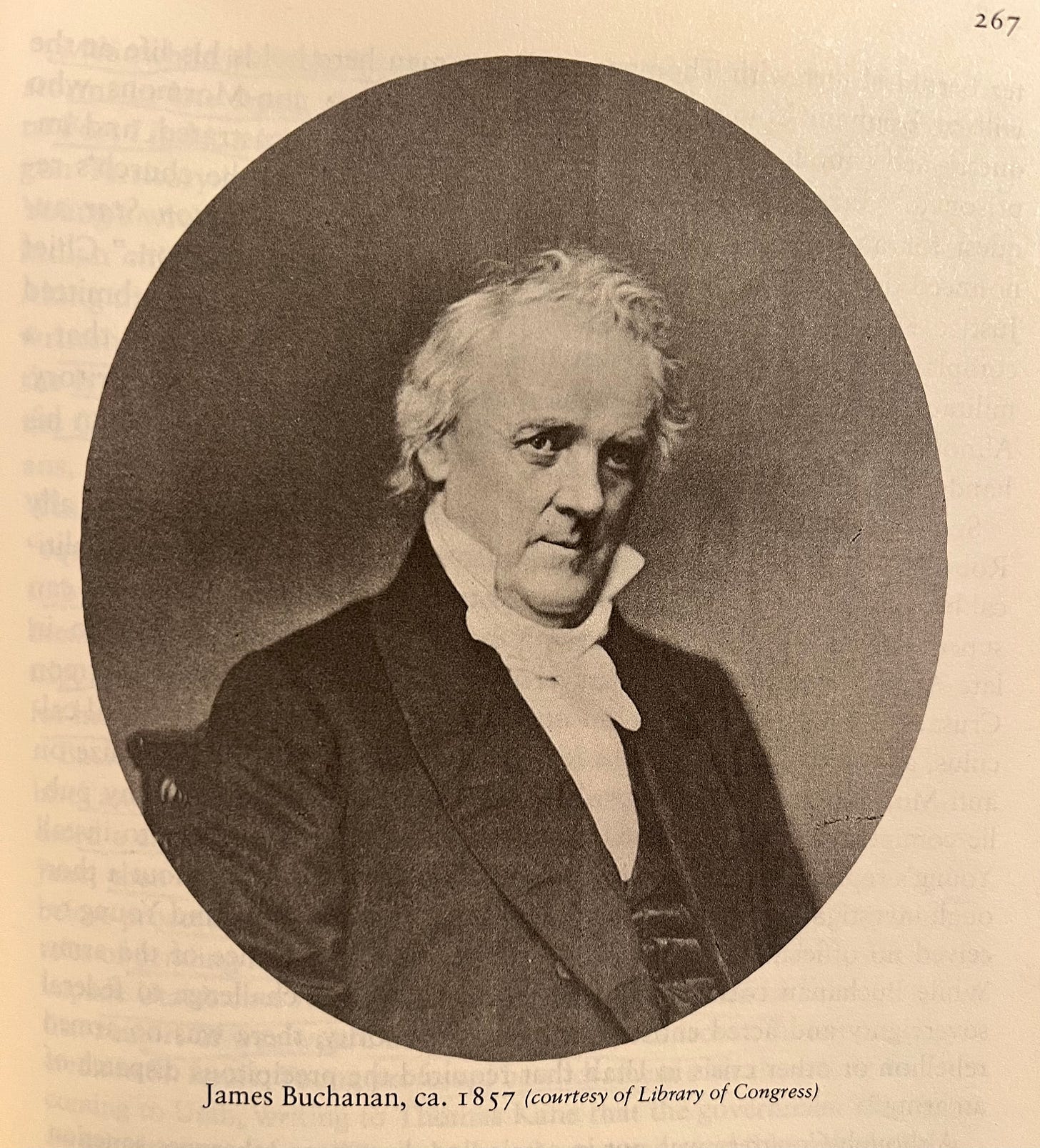The End of Mormon Polygamy
Brigham Young, James Buchanan, Dred Scott, and popular sovereignty.
Yesterday Rob Henderson posted an interesting note on Substack:
Elon Musk, currently the richest man in the world, is seen as prolific, with 13 children in total, but his fertility is on par with the median woman in Massachusetts in the late 17th century. At that time family sizes of more than 10 children were common in New England.
Historically, men who accumulate status and power, and are not confined by institutional rules or strong social norms, have more female partners than ordinary men. As the Harvard biologist Richard Wrangham has written, “If a male wins power, he will tend to use it to mate with as many females as possible.”
In most post-agricultural societies throughout history, such as among the Aztecs, Babylonians, Chinese, Egyptians, Incans, Indians, and Romans, harems of hundreds of women were the norm for kings, emperors and pharaohs.
The largest number of children that any man has ever had is 888. This individual was a Moroccan emperor named Ismail the Bloodthirsty, who reigned from 1672 to 1727….
This got me thinking…What American man has conceived the most children?
My guess is Brigham Young. According to ChatGPT:
Brigham Young, the second president of The Church of Jesus Christ of Latter-day Saints (LDS Church), is known for having had 55 children. He had these children with 16 different wives during his lifetime. His large family is a reflection of the practices of polygamy that were common in the early days of the LDS Church.”
Is he the American record holder?
This morning, Brigham Young must have been on my mind because I picked up a biography of him and continued reading where I left off two years ago.
In his book Brigham Young: Pioneer Prophet, John Turner writes:
Two days after Buchanan's March 4 inauguration, the Supreme Court in Dred Scott v. Sandford ruled that neither Congress nor territorial legislatures could enact bans on slavery in American territories. The decision eviscerated the notion of political sovereignty…
What is the Dred Scott decision? A little background first…
Buchanan here refers to President James Buchanan. Per ChatGPT:
James Buchanan was the 15th President of the United States, serving from 1857 to 1861. He was born on April 23, 1791, in Cove Gap, Pennsylvania, and is often remembered for his presidency during a time of deep national division over issues like slavery and states' rights. Buchanan was a Democrat and is considered one of the least effective U.S. presidents due to his inability to address the mounting tensions between the North and South, which eventually led to the Civil War.
Brigham Young, the governor of Utah and the second president of The Church of Jesus Christ of Latter-day Saints is facing off against the newly elected President Buchanan over sovereignty of the Utah Territory. (Utah at this time can be thought of as a union of church and state — what we might call a theocratic territory).
Turner writes that,
Officials in Washington were worried about Mormon loyalty, but not because of legislative baptisms. In early 1857, church leaders made a tactless attempt to resolve their longstanding feud with Washington over political appointments. In January, with Governor Young's approval, the territory's legislative assembly composed a memorial for incoming president James Buchanan. The memorialists warned that if Washington continued to appoint "office seekers and corrupt demagogues," Utah's citizens would "send them away." At the time, Mormon leaders were at odds with Utah's three federal justices (two of whom had left the territory) and an assortment of federal Indian agents and surveyors.
Utah legislators issue an “undiplomatic challenge to Washington.” Buchanan responds, “by sending the U.S. Army to extinguish what he concluded was a Mormon rebellion against national authority.”
James Buchanan and his rival Stephen Douglas ran campaigns that supported popular sovereignty. Turner writes that “Northern opponents of slavery’s expansion considered Buchanan a ‘doughface,’ a northerner with southern sensibilities.” He is “sympathetic to concerns of southern slaveholders.”
But, Turner writes:
While not sympathetic to slavery, Buchanan feared its ability to destroy the Union and worked to mollify the southern half of his party. Young probably expected that Buchanan's commitment to popular sovereignty rendered any action against Mormon polygamy unlikely. As it turned out, Young badly misjudged the "Old Public Functionary."
ChatGPT: What is the Dred Scott decision?
The Dred Scott decision refers to a landmark ruling by the U.S. Supreme Court in 1857 in the case of Dred Scott v. Sandford. The decision was a pivotal moment in U.S. history and is widely regarded as one of the worst Supreme Court decisions ever made.
Dred Scott was an enslaved African American man who had been taken by his owner, an army surgeon, from the slave state of Missouri to free territories, including Illinois and the Wisconsin Territory. Scott sued for his freedom, arguing that his time spent in free states and territories made him a free man.
The Supreme Court, in a 7-2 decision, ruled against Scott, holding that:
African Americans, whether free or enslaved, were not U.S. citizens and therefore had no right to sue in federal court.
Congress did not have the authority to prohibit slavery in the territories, which meant the Missouri Compromise (which had attempted to restrict the expansion of slavery) was unconstitutional.
The ruling effectively protected slavery in all U.S. territories, and it deepened the divisions between the North and South, contributing to the tensions that led to the Civil War. The decision was later overturned by the 13th and 14th Amendments, which abolished slavery and granted citizenship to all people born or naturalized in the United States, including former slaves.
With that setting, the U.S. Army is marching toward Utah. What will become of Utah’s sovereignty and Mormon polygamy?






Dark times. Reading about the mid 19th century helps put what we consider the dysfunctional politics of our day in context.